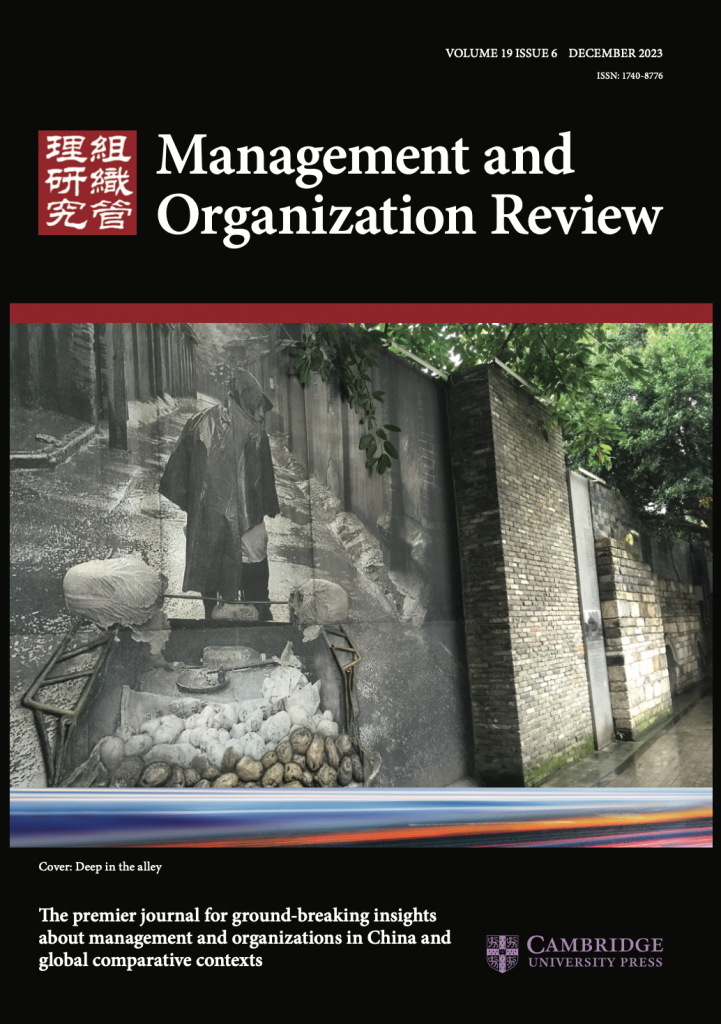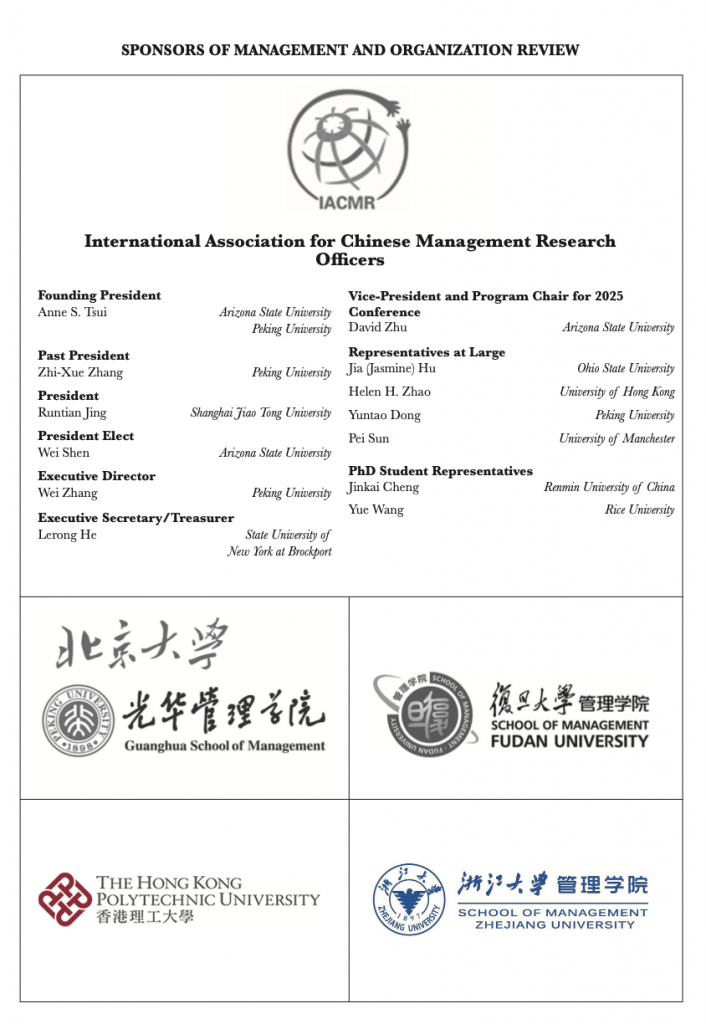Letter from the Editor| MOR Volume 19.6

Xiao-Ping Chen
It is with great excitement that I present this new issue of MOR to you. This new issueIt is with great excitement that I present this new issue of MOR to you. is full of exciting papers. First is a theoretical paper on the process of leadership (Yue, Persson, & Wasieleski, 2023), which integrates the Chinese notion of Shi 勢 (propensity of things) as a leading force encompassing human agency to achieve organization goals. This paper challenges the worldview of Western tradition and opens a new avenue of research on leadership.
Second, there are a few papers reporting new findings that illustrate how Chinese firms make decisions in investment and innovation, and how Chinese workers respond to environmental changes. Specifically, Shi, Cai, Wajda, and Jiang (2023) examined Chinese non-real-estate firms’ diversification investment in real estate, and found that such investment decisions were more likely to occur when the firm engaged in opportunistic diversification, that is, comparing with peer firms based on business segment performance when the performance of a firm’s main business relative to its peer firms’ high-profitability business segment falls short of their aspirations. Sullivan, Mao, and Wang (2023) studied how firm-specific knowledge affected a firm’s exploratory innovation and the role of government support in this process. The authors found that paying narrow attention to firm-specific knowledge explained why it was negatively associated with innovation output, and how firm state ownership and state financial support mitigated the negative association. Moreover, Li, Zhang, and Mao (2023) reported that the on-set of COVID-19 created an immediate decrease in job knowledge characteristics, which gradually increased over time in the post-onset period because of employees’ coping with the pandemic via a 6-month, 6-wave longitudinal survey of 235 employees in Macau. They also showed that the changes in job knowledge characteristics produced changes in job stress, but job security weakened its effect.
More excitingly, this issue also includes a set of provocative Dialogue, Discussion, and Debate papers on the institutional logics, focusing on how the institutional logics that guide Chinese firms have been transformed in the wake of the economic transition. Haveman, Joseph-Goteiner, and Li (2023) discussed the state logic – emphasizing equality, national community and political stability, and the Chinese version of the market logic – valorizing the central role that the state and the Communist Party continue to play in economic life. The authors argue that such market logic tempers efficiency, competition, and property rights by a continued concern for political stability. Three commentaries follow this perspective paper (Raynard & Greenwood, 2023; Lounsbury & Wang, 2023; Redding, 2023), providing intriguing alternative views to explain the changes in Chinese society and economy over the past four decades.
I am hopeful that more exciting papers with ground-breaking insights about Chinese organization and management will appear in 2024 – the year of dragon – when we celebrate the 20th anniversary of MOR!
With gratitude,

Xiao-Ping
Regular Articles
Dennis Yue, Sybille Persson, and David Wasieleski
Beyond the Western Conceptions with François Jullien: The Process of Leadership Informed by the Chinese Shi 勢 as Organizational Propensity
Wei Shi, Wenjing Cai, Dennis Wajda, and Fuxiu Jiang (33pp)
A Behavioral Account of Opportunistic Diversification: Evidence from non-Real Estate Firms’ Investment in Real Estate
Bilian Ni Sullivan, Kaixian Mao, and Heli Wang (23pp)
Constrained by Localized Attention Focus: The Negative Effect of Firm-Specific Knowledge on Exploratory Firm Innovation
Jiping Li, Lida L. Zhang, and Kaixian Mao (25pp)
A Dynamic Perspective on Job Knowledge Characteristics during the COVID-19 Pandemic
Dialogue, Debate, and Discussion
Heather A. Haveman, David Joseph-Goteiner, and Danyang Li
Institutional Logics: Motivating Action and Overcoming Resistance to Change
Mia Raynard and Royston Greenwood
Commentary on Perspective Article: ‘Institutional Logics: Motivating Action and Overcoming Resistance to Change’ – Heather A. Haveman, David Joseph-Goteiner, and Danyang Li
Michael Lounsbury and Milo Shaoqing Wang
Expanding the Scope of Institutional Logics Research
Gordon Redding
Commentary on ‘Institutional Logics: Motivating Action and Overcoming Resistance to Change’

